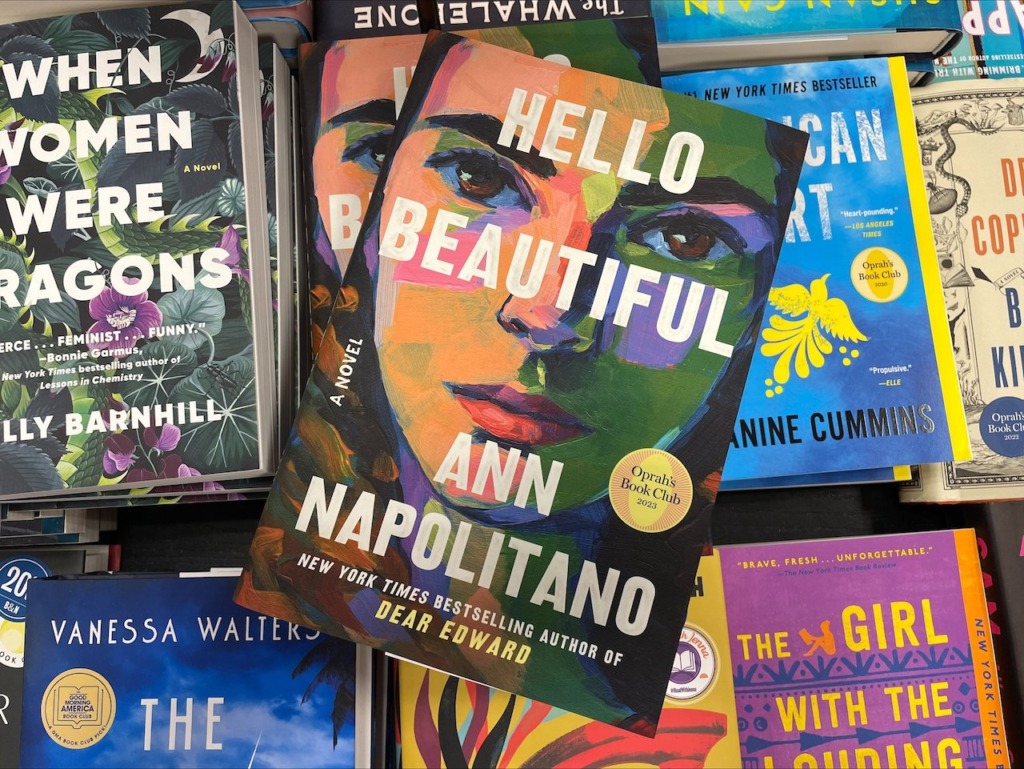“Hello Beautiful” by Ann Napolitano
The Dial Press (New York, 2023)
400 pp., $28.
When it comes to matters of the heart, blood may not be thicker than water.
“Hello Beautiful” is a rare work of fiction that mirrors real life so closely as to inspire readers to address challenges in their own relationships. Through relatable characters, pages filled with drama, and just a touch of humor, Ann Napolitano’s latest work is destined to be a classic.
The novel follows the Padavanos, a Chicagoan Italian-American family, made up of a mother, Rose, a father, Charlie, and their four daughters, Emeline, Cecelia, Sylvie, and Julia, as they come of age in the 1980s and the decades that follow.
In many ways, the Padavano family is a caricature of the stereotypical Italian-American “famiglia,” all the way down to the floral couch with plastic “slipcover.” Rose Padavano is the spunky matriarch who always gives the final word and will regularly call upon a litany of female saints, whose images overlook the family’s dining room table, as needed. When one of her daughters commits a particularly grievous offense against chastity, Rose has her carry around a framed image of St. Teresa of Avila wherever she goes.
The Padavano sisters grow up with a healthy fear of their mother but with a special devotion to their father. Charlie Padavano recites poetry and always greets his daughters with a whole-hearted, “Hello, beautiful!” Charlie drinks more than he should, but this detail is merely a footnote as his love and commitment to his family shine through.
Julia’s entrance into college brings a relationship with a young basketball player, William Waters, who works his way into the Padavano family, finding welcome and support as he navigates the trials of young adulthood. However, Waters is an unknowing intruder into the carefully balanced Padavano family dynamic as he brings his own complicated family past with him.
After Julia and William marry, Rose Padavano reveals her maternal heart in a moment of uncharacteristic vulnerability: “You girls were supposed to do more than I did,” she tells Julia, “I wanted you to be better. That was the whole point of my life.”
In the pages that follow, the Padavanos confront death, an unplanned pregnancy, infidelity and long periods of no contact with one another. The four sisters break apart and live their own lives, seemingly forgetful of the gift of communion they shared at their mother’s dining room table, with the framed saints watching over them.
Excellent fiction taps into real human experience, understanding the complexity of human culture and the experience of the heart. In “Hello Beautiful,” Ann Napolitano reimagines Louisa May Alcott’s “Little Women” into a mature and modern novel that considers some of the more complex elements of family life. Cute stories of everyday love in the Padavano family’s earliest days that are juxtaposed with the eventual lies and betrayals that happen in life and are likely to resonate with readers. The story of a family that once did everything together but has dissolved into a cadre of individuals each fighting for themselves is all too common, despite the tendency of families to want to smile for the camera and keep up appearances.
The story of the Padavano family holds up a mirror to modern family dynamics and gives readers an opportunity to rewrite their own family history. It would be impossible to read “Hello Beautiful” without thinking of family members who have held grudges for decades, or of loved ones who stopped communicating long ago.
Napolitano, through her storytelling, encourages readers to have the tough conversations, to address past pains, and forgive their loved ones. This is a gift of literary fiction that – beyond entertainment – has the possibility to impact generations.
Cecilia Cicone is an author and communicator who works in diocesan ministry in northwest Indiana.

